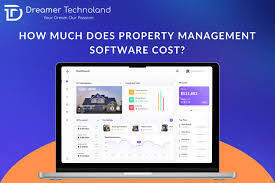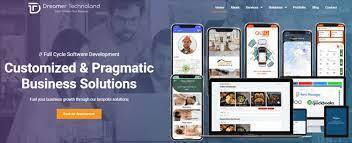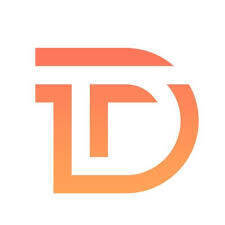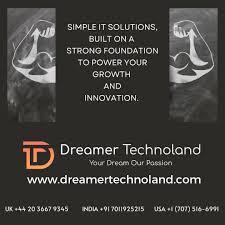Custom Property Management Software Development: Features, Cost & Benefits
The real estate industry is evolving rapidly, and property owners, managers, and realty firms are increasingly moving toward digital solutions to streamline operations. Manual processes—like rent collection, lease management, maintenance tracking, and tenant communication—are no longer scalable. This shift has accelerated the demand for property management software development, helping businesses automate workflows, improve efficiency, and boost profitability.
If you’re considering building a tailored solution or upgrading from outdated tools, this guide walks you through the features, benefits, cost factors, and the role of expert consultants in developing custom property management platforms.
Why Choose Custom Property Management Solutions?
Off-the-shelf software may work for basic tasks, but they often fail to support unique business needs. This is where custom property management solutions stand out. With a tailored system, you can:
1. Fit the Software Exactly to Your Workflow
Every property management company operates differently. Custom solutions allow you to configure:
- Lease cycles
- Payment structures
- Compliance requirements
- Maintenance processes
- Document workflows
No compromises, no unnecessary features—just what your business needs.
2. Increase Efficiency With Automation
Automation is a major benefit of digital transformation. Custom platforms simplify daily operations through:
- Automated reminders for rent and renewals
- Task scheduling for maintenance
- Real-time vacancy management
- Digital document signing
These tools eliminate repetitive tasks, reduce errors, and save time.
3. Achieve Better Scalability
As your portfolio grows, your software should grow with it. Custom systems offer scalability for managing:
- Multiple properties
- Diverse asset types (commercial, residential, co-living, etc.)
- Large tenant databases
- Complex accounting workflows
This ensures your software remains effective for years to come.
4. Strengthen Data Security
Real estate businesses deal with sensitive financial and personal data. With a custom-built system, you get advanced security protocols and tools like:
- Role-based access
- Secure cloud storage
- Encrypted communication
This gives you full control over data security and compliance.
Key Features to Include in Property Management Software
When planning your property management software development, incorporating the right features ensures high usability, better efficiency, and improved ROI. Here are the must-have modules:
1. Tenant & Lease Management
A centralized dashboard that manages the entire tenant lifecycle:
- Applications and screening
- Lease agreements & renewals
- Document uploads
- Tenant communication
This keeps everything organized in one place.
2. Online Rent Collection
Digital payment options make life easier for tenants and property managers. Popular features include:
- Automated payment reminders
- Online UPI, card, or bank transfers
- Payment history tracking
- Late fee automation
3. Maintenance & Work Order Management
A strong maintenance module ensures timely repairs with:
- Ticket creation by tenants
- Vendor assignment
- Status updates
- Workflow automation
- Photo/video attachments
4. Financial Dashboards & Reports
If you handle construction or project-based real estate, you will benefit from property development accounting software.
Key features include:
Key features include:
- Cash flow management
- Expense tracking
- Income forecasting
- Automated invoicing
- Profitability analytics
Accurate financial insights help in making strategic investment decisions.
5. Property Listings & Vacancy Management
A powerful listing module helps you advertise properties and reduce vacancy rates through:
- Integrated listing pages
- Lead collection
- Booking calendars
- Real-time availability updates
6. Mobile App for Managers & Tenants
Mobile apps provide anytime access to:
- Rent payments
- Upkeep requests
- Notices & announcements
- Property viewing appointments
Mobility boosts customer satisfaction and operational speed.
The Role of Property Management Software Consultants
Building custom real estate software requires strategic planning. Property management software consultants play a crucial role in:
1. Requirement Analysis
Experts study your business model, challenges, and long-term goals to define the right features and technical architecture.
2. Tech Stack Recommendation
Consultants recommend secure, scalable technologies for the web and mobile application.
3. UX/UI Planning
They create intuitive dashboards for tenants, property managers, accountants, and landlords.
4. Integration Strategy
Consultants ensure smooth integration with tools such as:
- Accounting systems
- Payment gateways
- CRM platforms
- ERP systems
5. Development Roadmap
They guide you through the complete development lifecycle, ensuring the project stays on schedule and within budget.
How Much Does Property Management Software Development Cost?
The final cost varies based on several factors:
1. Feature Complexity
More advanced features—such as AI-based analytics, automated workflows, or multi-property dashboards—increase development time and cost.
2. Number of User Types
Whether you need separate portals for tenants, landlords, vendors, and accountants also affects the pricing.
3. Integrations Required
Integration with payment gateways, CRM, ERP, or accounting tools adds extra development effort.
4. Platform Choice (Web + Mobile)
Building for both Android and iOS raises the budget compared to a single-platform solution.
5. Design Requirements
Custom UI/UX, branding, and responsive layouts also influence total cost.
Estimated Cost Range:
- Basic solution: Suitable for small realtors or single-property owners
- Mid-level solution: Ideal for growing property management companies
- Advanced enterprise system: Recommended for large real estate firms & developers
Development Process: How a Custom Property Management System Is Built
The entire journey usually follows these steps:
Requirements gathering, competitor analysis, and defining user roles.
Creating user interfaces for dashboards, forms, and workflows.
Building core features, modules, and integrations.
Ensuring smooth performance across devices and browsers.
Cloud setup, security implementation, and final rollout.
Regular updates, bug fixes, and new feature additions.
Final Thoughts
With the right digital tools, property management becomes faster, more efficient, and far more profitable. Whether you're managing residential complexes, commercial properties, or a large real estate portfolio, custom property management solutions provide flexibility and long-term scalability that generic tools cannot match.
By partnering with experienced property management software consultants, you can build a robust, feature-rich system that enhances operations, reduces manual work, and offers superior tenant experiences.
Related Articles:





